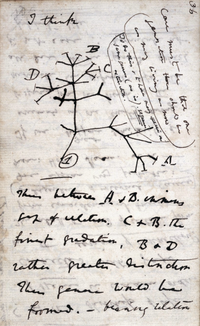User:Abtract/sandbox1
[count]
Life's too short ...
[edit]Even in the privileged western world, the life expectancy of an average human is only about 80 years. To a fruit fly this would seem an eternity but to a geologist it is but the blink of an eye. Even to a child or young person, life seems eternal but, as a person approaches middle age, 80 starts to look worryingly close.
Having said that, when you think how much you can do in a week, 80 years seems a long time. Just think about a week:
- 7 days ... about 100 hours of productive time allowing for sleeping, eating and a little chill time
- run 3600 kilometres ... run 100 metres in 10 seconds.[1]
- climb Mount Everest ... Tenzing and Hillary did it and had time left over for photgraphs and to bury some sweets.
- write 100 poems; could it take more than an hour to write this?
- Nature's first green is gold,
- Her hardest hue to hold.
- Her early leaf's a flower;
- But only so an hour.
- Then leaf subsides to leaf.
- So Eden sank to grief,
- So dawn goes down to day.
- Nothing gold can stay.
So in a year we could run around the equator, climb the world's 5 highest peaks, write several books of poetry and have plenty of time left for burying sweets and editing Wikipedia. Of course in the real world
intro
[edit]In biology, evolution is change in the heritable traits of a population over successive generations. This process results in the development of new species from existing ones and is thus the process by which life on Earth became so diverse. All contemporary organisms on earth are related to each other through common descent, the products of cumulative evolutionary changes over billions of years.
The basic mechanisms that produce evolutionary change are natural selection and genetic drift; these two mechanisms act on genetic variation as it occurs. Natural selection is the process by which individual organisms with favorable traits are more likely to survive and reproduce. Those traits that are heritable are passed to the offspring, with the result that beneficial heritable traits become more common in the next generation.[1][2][3] Over successive generations this process can result in varied adaptations to changing environmental conditions.[4]
The modern understanding of evolution is based on the theory of natural selection, first set out in a joint 1858 paper by Charles Darwin and Alfred Russel Wallace and popularized in Darwin's 1859 book The Origin of Species. In the 1930s, these ideas concerning the process of evolution were combined with ideas concerning the mechanisms of heredity to form the current theory of evolution, known technically as the modern evolutionary synthesis, or "Neo-Darwinism". With its enormous explanatory and predictive power, this theory has become the central organizing principle of modern biology, relating directly to topics such as the origin of antibiotic resistance.
Although there is overwhelming evidence and scientific consensus supporting the validity of evolution,[5] it has been at the center of many social and religious controversies because it has implications on the origins of humankind.[6]
| Part of the Biology series on |
| Evolution |
|---|
 |
| Mechanisms and processes |
| Research and history |
| Evolutionary biology fields |
Living language
[edit]Living language is a term used to remind English language pedants that there is no absolute and unchangeable definition of correct word meaning or usage or grammatical sentence construction.
At its simplest, it is a synonym for "modern language" where there are native speakers, in other words there are those for whom this is their first language, learned from childhood. However it also carries strong overtones of "ability to be changed by common vernacular usage". An example of such change is the word "gay" in English which in the middle of the 20th century meant "happy or jolly" and at the beginning of the 21st century means "homosexual". Somewhere in that period gay was used as a self-reference by the homosexual community and then more commonly by the general population until the new meaning fully supplanted the old. During that peiod, neither meaning was ever "wrong" or "right" but ccommon usage dictated its acceptance or not in individual circumstances.
French may be the least "living" European language due to the existence of the Académie française, or French Academy, which is the pre-eminent learned body on matters pertaining to the French language. The Academie attempts to retain the purity (or stultify depending on perspective) of the French language by eliminating words of foreign, especially English, origin and preventing major shifts in meaning and grammatical usage.
On the other hand, English has no such academy but there are self-elected "language police" who attept to stem the tide of vernacular change
No extinct language is a living language because there are no native speakers whose vernacular usage could alter the language; Latin is an example of such a language.
- ^ Cite error: The named reference
Futuymawas invoked but never defined (see the help page). - ^ Lande, R. (1983). "The measurement of selection on correlated characters". Evolution. 37: 1210–1226. doi:10.2307/2408842. JSTOR 2408842.
{{cite journal}}: Unknown parameter|coauthors=ignored (|author=suggested) (help) - ^ Haldane, J.B.S. (1953). "The measurement of natural selection". Proceedings of the 9th International Congress of Genetics. 1: 480–487.
- ^ "Mechanisms: the processes of evolution". Understanding Evolution. University of California, Berkeley. Retrieved 2006-07-14.
- ^ Myers, PZ (2006-06-18). "Ann Coulter: No evidence for evolution?". Pharyngula. scienceblogs.com. Retrieved 2006-11-18.
- ^ This article by G.R. Morgan documents one aspect of the debate from reaction against the milder theories of Darwin's predecessors to the present day.
